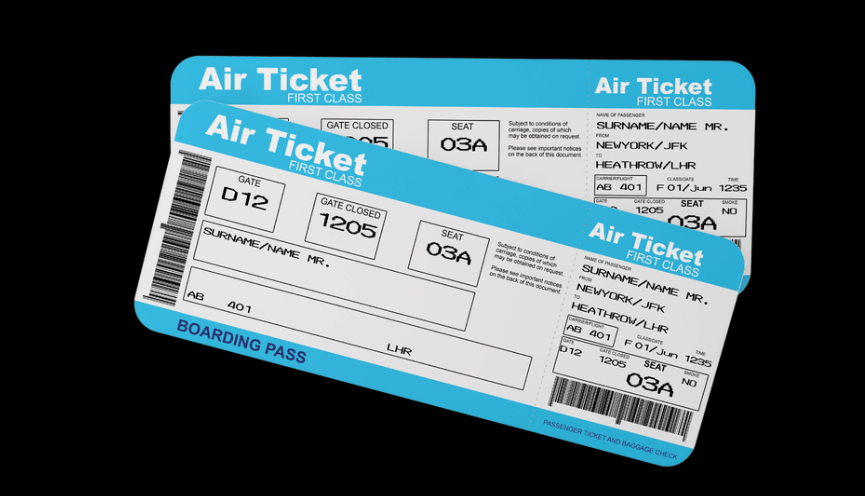Have you ever taken a moment to think about the number of contracts you enter into each day? This post gives you some examples of contracts that you might enter into without even knowing. It’s more than you might realise!
Some of those Contracts are written contracts, some are verbal contracts. Some are express contracts, while some are implied contracts. Regardless of whether or not you understand contract law in detail, you can still enter into contracts in your personal lives and business agreements.
From something as simple as buying your morning coffee to booking a flight for your next vacation, contracts are all around us, playing a significant role in our lives.
But it’s not just our personal lives that involve contracts. In the business world, contracts are a necessary part of conducting business.
And regardless of your profession, having a basic understanding of how they work is crucial. Whether you’re an employee, a leader or manager, an entrepreneur or a freelancer, knowing how to negotiate favorable terms in your business agreements and protect yourself from unexpected liabilities is essential.
So, let’s explore the world of contracts together and check out some examples of contracts!

The number of contracts on an overnight trip
Guess how many Contracts I entered into on my overnight business trip the other day!
Did you guess 3?
Nope.
Check this out (and you’ll see why everyone needs to understand about Contracts and Contracting, no matter your profession)…
Airline Ticket Contract

When I booked my ticket online, I agreed to the terms and conditions set by the airline. That was my first Contract. And a written contract establishing a formal contractual relationship at that.
I was disappointed I couldn’t bring my pet rabbit with me or take a large magnet, but I got over it in the end. And while it wasn’t a signed contract – I wasn’t given a written agreement that I had to sign – by ticking the box on the website and paying for the ticket, I agreed to comply with the terms and conditions of the flight. So this is one of the better examples of contracts, and shows you how they don’t need to be in writing.
Uber Ride Contract
I took an Uber to the airport, which meant I entered into a contract with Uber. I paid money for the ride, and they got me there (luckily) safely.

Flight check-in
I checked into my flight, and had to promise that I wasn’t carrying prohibited items. That wasn’t a separate contract – I consider it an enforcement mechanism for the main contract (ie the Airline Ticket Contract). In a post about examples of contracts, this is an example of an action that is not a contract.
Going through Security
Is going through Security a separate contract? I don’t think so. I think they’re an enforcement mechanism for the Airline Ticket Contract I’d already entered into.
Purchasing extra baggage
This constituted a variation to the Airline Ticket Contract. In other words, I changed the terms of the original written contract, signed the variation document, and agreed to pay an additional amount for my unexpectedly heavy luggage.
Coffee Contract
I needed a coffee as soon as I checked in and passed through security. I exchanged far too much money for a delicious airport cup of caffeine goodness! Contract.
Food Contract
I paid 5-star restaurant prices for cheap and nasty takeaway food with lots of oil. Sigh. Another Contract.
Getting on the Plane
I had to show my ticket – another enforcement mechanism, not a new contract.
Buying food on the plane
This was a Contract (because my food was not included within the air fare, ie the Airline Ticket Contract). It was a verbal contract because I didn’t sign anything, just paid and took my food in exchange.
Landing safely in the plane

This was not necessarily a contractual condition – I think you’d find that airlines are very careful not to promise you’ll receive a safe landing at any stage. In terms of examples of contracts, this again is an example of something that is not a contract.
So let’s call it a nice bonus from the performance of the Airline Ticket Contract.
Uber Contract
Another one. But it’s a different Contract than the one before.
It’s an interesting question because you book an Uber in their app, but I definitely class this as a written contract.

Hotel Booking Contract
I paid money, agreed to their terms and conditions by signing their form on the dotted line, which created a written contract (even though they didn’t sign the contract themselves. And I got a (mostly) clean room to stay in overnight.
As agreed in my Contract, I had to check out by 10am the next morning.
Dinner Contract
I could have eaten dinner at a cafe or restaurant, but I decided to order Uber Eats instead. This was another Contract.
Though it turns out they sent me the wrong order and gave me a refund when I complained. So that closed out that Contract. And ordering my dinner again – I was hungry! – was a new Contract.

Now for sleep
I definitely was not thinking about legal agreements or business contracts. Or contract law!
Meeting
What can I say – I thought about coffee the entire time!
Uber to the Airport for my flight home
A whole different Contract.
Breakfast Contract
I bought a late breakfast at the airport, which was another Contract. This was an implied contract but still a binding agreement.
Coffee Coffee Coffee

Then I bought a coffee. Well, it was actually three.
That’s three more Contracts! And I was definitely in the contract business that day!
Uber home
Yep, another written contract. A valid contract showing the mutual assent between the parties, with legal enforceability.
The grand total???
There you have it. All in all, I entered into fifteen Contracts! And to think, all I wanted to do was catch a flight and eat greasy airport food!
Did you pick them all?
So, the next time you’re sipping on a cup of coffee or checking into a hotel room, take a moment to think about the contract law you’re encountering and the Contracts you’re entering into. You might be surprised by how many there are!
In Conclusion
So, what’s the point of all this?
Well, the truth is that contracts are all around us – both written contracts and verbal contracts – and we enter into them every day without even realising it. Examples of Contracts surround us. From the mundane, like buying coffee, to booking a flight, to legal agreements for business transactions, Contracts are a fundamental part of our daily lives.
And that’s just our personal lives. Once you enter the business world, contracts become a feature which you simply cannot escape. Even if you do not have a legal degree, you’re still expected to understand how contracts work and know how to use them.
Whether they are a written contract or a verbal contract, they are each still a legally enforceable contract goverened by contract law – it’s important to keep that in mind.
Understanding the basics of contracting is essential, no matter your profession. By knowing how contracts work, and learning some of the common examples of Contracts, you can protect yourself and your business from unexpected liabilities, negotiate better terms for your legal agreements, and ensure that you’re getting what you’re paying for. Understanding how contract processes work, what contractual obligations are governing your business relationship, and how best to deal with the other contracting party will help you substantially in your career and also help increase revenue and improve the performance of your business.
That’s where we come in, at Blaze Professional Learning. We teach you how to understand, use and work with contracts, and we believe that having a legal degree is not an essential requirement for working with contracts.
So come on this ride with us, and transform your Contracting skills!
FAQs
1. What is an express contract?
An express contract is a contract where the terms and conditions are explicitly agreed upon by both parties, either in writing or orally.
2. What is an implied contract?
An implied contract is a contract that is not explicitly agreed upon by both parties, but rather inferred based on the conduct of the parties involved. For example, if you visit a restaurant and order food, an implied contract is formed between you and the restaurant to pay for the food.
3. Are written contracts better than verbal contracts?
While written contracts offer more protection and clarity, verbal contracts can still be enforceable in court. However, it’s always recommended to get any important legal agreement in writing to clarify the legal obligations for the goods, works or services rendered and avoid misunderstandings or disputes.
In the business context, we always recommend that you get your contractual agreement in writing. This will help you ensure that the contract is managed correctly, as well as enable you to keep a comprehensive audit trail.
4. Are all verbal agreements considered contracts?
No, not all verbal agreements are considered contracts. In order for a verbal agreement to be considered a contract, there must be a mutual understanding of the terms and conditions, an offer, acceptance, and consideration (something of value exchanged between the parties).
5. Can an implied contract override an express contract?
In certain circumstances, an implied contract can override an express contract.
For example, if an employer and employee have an express contract that states the employee will be paid a certain salary, but the employer consistently pays the employee a different, higher amount, the higher amount may become an implied term of the contract.
6. Can a contract be both express and implied?
Yes, a contract can contain both express and implied terms. Express terms are explicitly agreed upon by both parties, while implied terms are inferred based on the conduct of the parties involved.
7. Can you modify an express contract verbally?
Yes, an express contract can be modified verbally, but it’s always recommended to get any modifications in writing to avoid disputes later on.
8. What is Contract Law?
Contract Law can be thought of as a set of rules that help us make sure promises are kept and people are held responsible for their actions. It’s like a system of checks and balances intended to make sure all the kids play fair in the sandpit.
Whenever you create a contract, Contract Law prescribes whether the contract is valid. It also defines what’s expected of both parties, what happens if something goes wrong in the contractual relationship, and what the rights of each party are.
9. Can a contract be voided if one party did not understand the terms?
If one party did not understand the terms of the contract, it may be possible to argue that there was no mutual intent and that the contract is unenforceable. It may also be possible to argue that there was diminished capacity on the part of one of the parties, in the same way that contracts entered into directly with minors are generally not valid.
Can a contract be amended after it has been signed?
A contract can be amended after it has been signed if both parties agree to the changes.
What is the Statute of Frauds?
The Statute of Frauds is a legal doctrine that requires certain types of contracts (eg contracts for the sale of land) to be in writing to be enforceable. Many countriesStates have enshrined this principle into legislation, although the details of the legislation are often different between countries/States.
Can a minor enter into a contract?
In a practical sense, it is possible for an underage minor to physically sign a contract. However, in most cases, that contract will not be considered valid as a matter of contract law. This is because contract law generally states that minors (as defined in the relevant jurisdiction) are not legally competent to enter into contracts.




